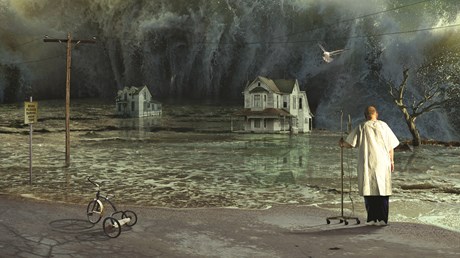Here’s what I learned.

As I emerged from the fog of anesthesia, I heard the surgeon informing my wife, Kelly, that our worst fear had improbably come true.
“Cancer!?” I interrupted, before falling back into unconsciousness. That happened six more times before I fully awoke.
Earlier in the week, tests had revealed a suspicious growth atop a nerve bundle in my pelvis, which explained the shooting leg pains I had been experiencing. Baffled about where the mass might have originated, I was scheduled for a colonoscopy. “Chances of cancer in someone your age and health are less than 1 percent,” the surgeon said just before performing the procedure.
Not long after, I found myself at a cancer center looking over an oncologist’s shoulder and examining my test results on his computer.
“It’s cancer,” he confirmed. He went on: The cancer was advanced, and the tumor in my colon had spread to create the mass in my pelvic region.
I cried as the shock started to wear off. The oncologist tried some small talk. “What is it you do for a living?” he asked. I told him I’m a college professor, and that I direct the Humanitarian Disaster Institute (HDI), a Wheaton College research center dedicated to the study of faith and disasters.
“Looks like you’re in for your own personal disaster,” he said.
At the age of 35, I was diagnosed with stage 4 colon cancer. I had multiple surgeries to remove it. Altogether, I underwent chemotherapy for close to a year. For the first six months, my oncologist would only respond to my requests for a prognosis by telling me, “I can’t tell you that it’s going to be okay, Jamie. It’s too early to tell. But if there’s anyone you want …
Source: Christianity Today Most Read